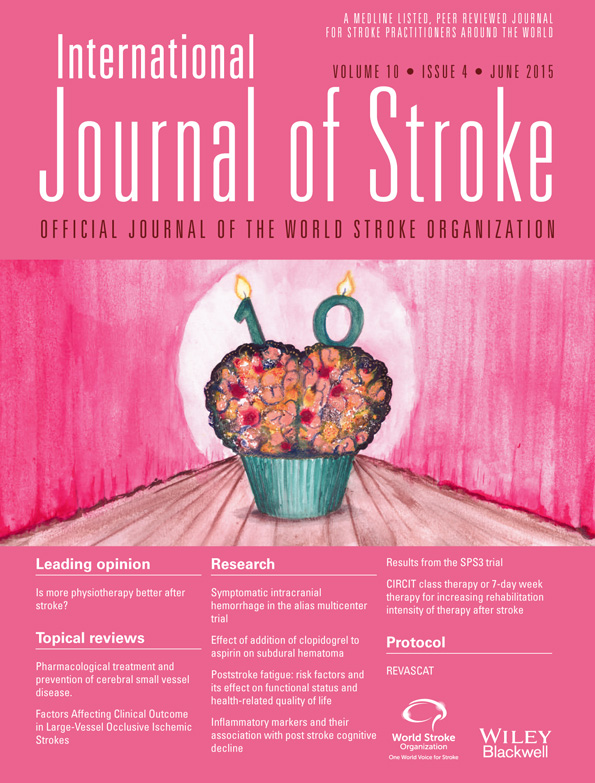Cognitive performance following lacunar stroke in Spanish-speaking patients: results from the SPS3 trial
Abstract
Background
Cognitive impairment is frequent in lacunar stroke patients. The prevalence and pattern among Spanish-speaking patients are unknown and have not been compared across regions or with English-speaking patients.
Aims
The aim of this study was to characterize cognitive impairment in Spanish-speaking patients and compare it with English-speaking patients.
Methods
The baseline neuropsychological test performance and the prevalence of mild cognitive impairment, defined as a z-score ≤ −1·5 on memory and/or non-memory tests, were evaluated in Spanish-speaking patients in the Secondary Prevention of Small Subcortical Strokes trial.
Results
Out of 3020 participants, 1177 were Spanish-speaking patients residing in Latin America (n = 693), the United States (n = 121), and Spain (n = 363). Low education (zero- to eight-years) was frequent in Spanish-speaking patients (49–57%). Latin American Spanish-speaking patients had frequent post-stroke upper extremity motor impairment (83%). Compared with English-speaking patients, all Spanish-speaking patient groups had smaller memory deficits and larger non-memory/motor deficits, with Latin American Spanish-speaking patients showing the largest deficits median z-score −1·3 to −0·6 non-memory tests; ≤5·0 for Grooved Pegboard; −0·7 to −0·3 for memory tests). The prevalence of mild cognitive impairment was high and comparable with English-speaking patients in the United States and Latin American Spanish-speaking patients but not the Spanish group: English-speaking patients = 47%, Latin American Spanish-speaking patients = 51%, US Spanish-speaking patients = 40%, Spanish Spanish-speaking patients = 29%, with >50% characterized as non-amnestic in Spanish-speaking patient groups. Older age [odds ratio per 10 years = 1·52, confidence interval = 1·35–1·71), lower education (odds ratio 0–4 years = 1·23, confidence interval = 0·90–1·67), being a Latin American resident (odds ratio = 1·31, confidence interval = 0·87–1·98), and post-stroke disability (odds ratio Barthel Index <95 = 1·89, confidence interval = 1·43–2·50) were independently associated with mild cognitive impairment.
Conclusions
Mild cognitive impairment in Secondary Prevention of Small Subcortical Strokes Spanish-speaking patients with recent lacunar stroke is highly prevalent but has a different pattern to that observed in English-speaking patients. A combination of socio-demographics, stroke biology, and stroke care may account for these differences.




